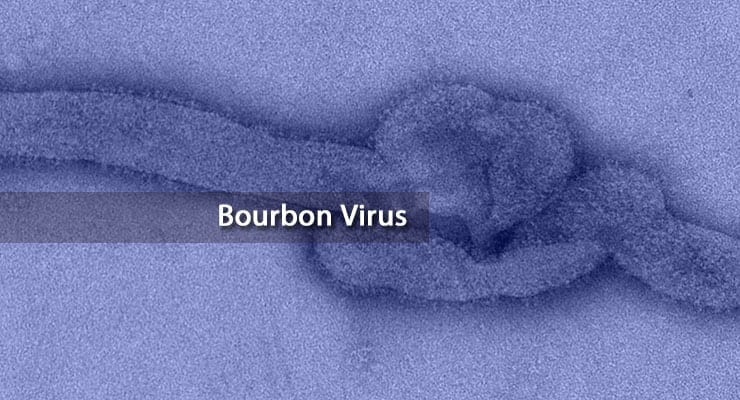In late spring 2014, a man from eastern Kansas sought medical care, presenting with a history of tick bite, fever, nausea and fatigue. He died 11 days after the illness started.
Several tickborne pathogens, such as Ehrlichia chaffensis, Rickettsia, and Heartland virus, are present in eastern Kansas and adjacent areas. However, the patient did not respond to doxycycline therapy and had negative results for these and other tickborne pathogens.
Utilizing molecular tools, CDC researchers have identified the cause of the illness as a novel member of the genus Thogotovirus, dubbed the ‘Bourbon virus’ based on the county where the patient lived.
This is the first time a virus in this group has been shown to cause human illness in the United States and only the eighth known case of thogotoviruses causing symptoms in people.
“The discovery of Bourbon virus, in addition to recent discoveries of tick-associated Heartland and severe fever with thrombocytopenia syndrome viruses suggests that the public health burden of these pathogens has been underestimated,” state the researchers.
CDC is now working to identify additional cases of Bourbon virus disease, determine who gets sick and with what symptoms, and how people are getting infected. CDC experts will also be working in the lab to better understand the virus itself, how it makes people sick, and what animals (if any) may play a role in its spread. This information will help determine the best ways to potentially prevent and control Bourbon virus.
Read more at the EID Journal: Novel Thogotovirus Species Associated with Febrile Illness and Death, United States, 2014.



